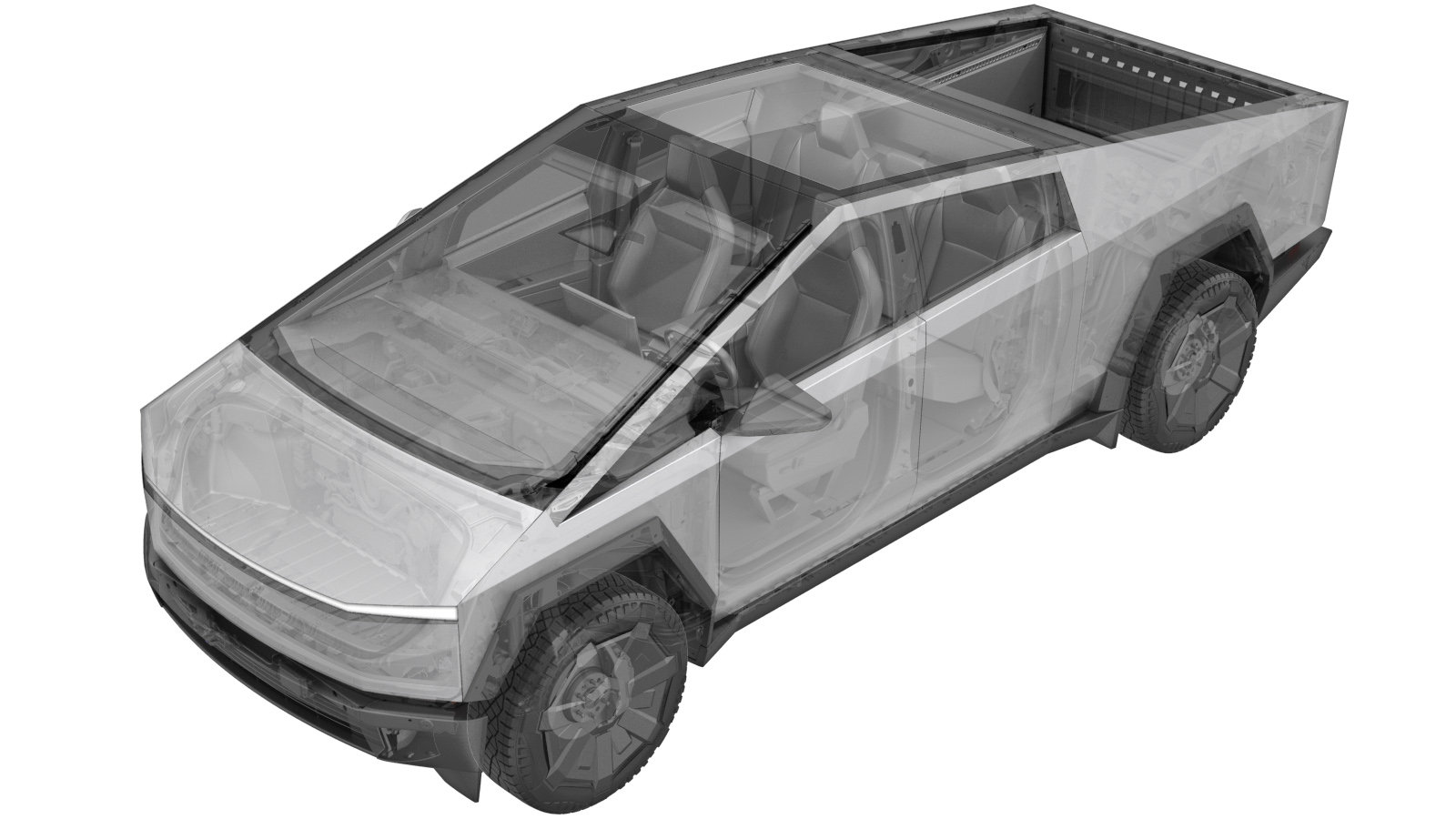Busbar - Charge Port (Remove and Replace)
 Correction code
4401024042
FRT
1.26
NOTE: Unless
otherwise explicitly stated in the procedure, the above correction code and
FRT reflect all of the work required to perform this procedure, including
the linked procedures. Do
not stack correction codes unless explicitly told to do so.
NOTE: See Flat Rate Times to learn more about FRTs and how
they are created. To provide feedback on FRT values, email ServiceManualFeedback@tesla.com.
NOTE: See Personal Protection
to make sure wearing proper PPE when performing the below procedure.
NOTE: See Ergonomic Precautions for safe and
healthy working practices.
Correction code
4401024042
FRT
1.26
NOTE: Unless
otherwise explicitly stated in the procedure, the above correction code and
FRT reflect all of the work required to perform this procedure, including
the linked procedures. Do
not stack correction codes unless explicitly told to do so.
NOTE: See Flat Rate Times to learn more about FRTs and how
they are created. To provide feedback on FRT values, email ServiceManualFeedback@tesla.com.
NOTE: See Personal Protection
to make sure wearing proper PPE when performing the below procedure.
NOTE: See Ergonomic Precautions for safe and
healthy working practices.
- 2024-03-06: Updated DC FC header greasing steps.
Remove
- Open the tonneau cover.
- Open the tailgate.
- Open the LH front door and lower the LH front window.
- Use the touchscreen to open the charge port door.
- Remove the rear underhood apron. See Underhood Apron - Rear (Remove and Install).
- Disconnect MV power. See Disconnect MV Power (Modify).
- Perform the charge port voltage check. See Charge Port Voltage Check.
- Remove the LH aft rear fender flare. See Fender Flare - Aft - Rear - LH (Remove and Install).
- Remove the LH fore rear fender flare. See Fender Flare - Fore - Rear - LH (Remove and Install).
- Remove the LH rear fender flare aft carrier. See Carrier - Fender Flare - Aft - Rear - LH (Remove and Install).
- Remove the LH rear fender flare fore carrier. See Carrier - Fender Flare - Fore - Rear - LH (Remove and Install).
- Remove the bed floor assembly. See Bed Floor Assembly (Remove and Install).
- Remove the LH sail applique assembly. See Sail Applique - LH (Remove and Replace).
-
Release the clip that attaches the LH
tonneau rail seal to the vehicle, and then remove the rail seal from the vehicle.
NotePull away the seal away from the rail to release it from the groove.
- Remove the LH upper bed side wall assembly. See Bed Side Wall Assembly - Upper - LH (Remove and Install).
- Remove the LH rear bed closeout. See Bed Closeout - Rear - LH (Remove and Install).
- Remove the LH bed side wall. See Bed Side Wall - LH (Remove and Install).
-
Remove the bolt that attaches the
busbar HV connector lid.
 9 Nm (6.6 lbs-ft)TIpUse of the following tool(s) is recommended:
9 Nm (6.6 lbs-ft)TIpUse of the following tool(s) is recommended:- 10 mm socket
-
Remove the bolts (x2) that attach the
HV connector to the DC FC header.
 9 Nm (6.6 lbs-ft)TIpUse of the following tool(s) is recommended:
9 Nm (6.6 lbs-ft)TIpUse of the following tool(s) is recommended:- 10 mm socket
-
Release the HV connector from the DC
FC header, and then use an inflatable airbag to suspend the busbar assembly above the
ancillary assembly.
NoteUpon separation, check for grease around the inner perimeter of the DC FC header. If present, additional steps will need to be performed later.
-
Disconnect the charge port assembly
electrical connector.
NoteRemove the white locking tab. Press the tab to release the connection from the charge port. Continue to pull off connector. The charge port connection is intended to disengage the safety cap when released.NoteDo not push down on the red tab. Pull the red tab to disengage lock. Pull again to release the electrical connector.
-
Release the clip and disconnect the
charge port door LV electrical connectors (x2).
-
Remove the bolt that attaches the
ground cable to the busbar assembly.
 6.5 Nm (4.8 lbs-ft)TIpUse of the following tool(s) is recommended:
6.5 Nm (4.8 lbs-ft)TIpUse of the following tool(s) is recommended:- 10 mm socket
-
Remove the bolt that attaches the
charge port to the outer sail.
 6.5 Nm (4.8 lbs-ft)TIpUse of the following tool(s) is recommended:
6.5 Nm (4.8 lbs-ft)TIpUse of the following tool(s) is recommended:- 10 mm deep socket
-
Remove the bolts (x2) that attach the
charge port assembly onto the body.
 6 Nm (4.4 lbs-ft)TIpUse of the following tool(s) is recommended:
6 Nm (4.4 lbs-ft)TIpUse of the following tool(s) is recommended:- 10 mm 12-point deep socket
CAUTIONUse only hand tools. Risk of galling if power tools are used on stainless bolts. -
Remove the charge port and busbar
assembly from the vehicle.
-
If grease was found around the inner
perimeter of the DC FC header, use a disposable towel to wipe the grease off the header
and the busbar connector.
NoteDo not allow the grease to contact the busbar HV mating surfaces.
Install
- Inspect the HV busbar connector of the replacement busbar chargeport assembly.
-
Prepare the grease gun with Mobil XTCE
grease, apply a 6 mm diameter continuous bead around the DC FC header inner perimeter,
and then use a gloved finger wetted with alcohol to smear the grease up the inner wall
to a height of 10 mm.
NoteThe grease is part number 1089958-00-A and is available from eProcurement.
-
Clean the DC FC header contact surface
of residual Penetrox with an Isopropyl Alcohol (IPA) wipe.
NoteAllow 1 minute dry time after removing Penetrox.NoteNew busbar comes with Penetrox applied to the HV connector.
-
Position the busbar chargeport
assembly onto the vehicle.
-
Install the bolts (x2) that attach the
busbar chargeport assembly to the DC FC header.
 9 Nm (6.6 lbs-ft)TIpUse of the following tool(s) is recommended:
9 Nm (6.6 lbs-ft)TIpUse of the following tool(s) is recommended:- 10 mm socket (insulated)
-
Perform a Hioki resistance test at
each HV joint from the HV busbar lead to the bolt head.
Notex2 HV jointsNoteWhen using a Hioki tester, verify the meter has been properly adjusted and set prior to usage.NoteThe acceptable resistance is between 0.050 mΩ (50 μΩ) and 0.195 mΩ (195 μΩ).
- If the resistance is greater than 0.195 mΩ (195 μΩ), there is too much resistance in the High Voltage joint. Remove the fastener, clean areas with isopropyl alcohol, install fastener back and test again.
- If the resistance is lower than 0.050 mΩ (50 μΩ), reposition the probes and measure again.
- If the resistance is repeatedly between 0.00 mΩ and 0.050 mΩ (50 μΩ), the Hioki test passed. proceed to the next step.
-
Install the bolt that attaches the
busbar HV connector lid.
 9 Nm (6.6 lbs-ft)TIpUse of the following tool(s) is recommended:
9 Nm (6.6 lbs-ft)TIpUse of the following tool(s) is recommended:- 10 mm socket
-
Install the bolts (x2) that attach the
busbar chargeport assembly onto the body.
 6 Nm (4.4 lbs-ft)TIpUse of the following tool(s) is recommended:
6 Nm (4.4 lbs-ft)TIpUse of the following tool(s) is recommended:- 10 mm 12-point deep socket
CAUTIONUse only hand tools. Risk of galling if power tools are used on stainless bolts. -
Install the bolt that attaches the
charge port to the outer sail.
 6.5 Nm (4.8 lbs-ft)TIpUse of the following tool(s) is recommended:
6.5 Nm (4.8 lbs-ft)TIpUse of the following tool(s) is recommended:- 10 mm deep socket
-
Install the bolt that attaches the
busbar ground to the body.
 6.5 Nm (4.8 lbs-ft)TIpUse of the following tool(s) is recommended:
6.5 Nm (4.8 lbs-ft)TIpUse of the following tool(s) is recommended:- 10 mm socket
-
Connect the charge port door
electrical connectors (x2) and fasten the clip.
-
Connect the charge port electrical
connector.
NoteFully engage the connection and white locking tab. The electrical connector is intended to lock the safety cap in place.
- Install the LH bed side wall. See Bed Side Wall - LH (Remove and Install).
- Install the LH rear bed closeout. See Bed Closeout - Rear - LH (Remove and Install).
- Install the LH upper bed side wall assembly. See Bed Side Wall Assembly - Upper - LH (Remove and Install).
-
Position the LH tonneau rail seal into
the vehicle, push the seal into the rail groove, and then secure the clip.
- Install the LH sail applique assembly. See Sail Applique - LH (Remove and Replace).
- Install the bed floor assembly. See Bed Floor Assembly (Remove and Install).
- Install the LH rear fender flare aft carrier. See Carrier - Fender Flare - Aft - Rear - LH (Remove and Install).
- Install the LH rear fender flare fore carrier. See Carrier - Fender Flare - Fore - Rear - LH (Remove and Install).
- Install the LH fore rear fender flare. See Fender Flare - Fore - Rear - LH (Remove and Install).
- Install the LH aft rear fender flare. See Fender Flare - Aft - Rear - LH (Remove and Install).
- Reconnect MV power. See Disconnect MV Power (Modify).
- Install the rear underhood apron. See Underhood Apron - Rear (Remove and Install).
- Raise the LH front window and close the LH front door.
- Close the tonneau cover.
- Close the tailgate.